You’ve probably seen a QR code in the wild.
These blocky barcodes appear in ads, flyers, web pages, checkouts, and product packaging. You might have even scanned one.
But have you ever made one? Creating QR codes is surprisingly easy, and there are many ways you can deploy them both online and in the real world.
If you’re wondering how to generate your own codes and use them in your projects, this guide is for you. Stick with us for the next few minutes, and you’ll soon be a QR expert!
(Want to skip to the tools? Scroll down to see the 8 best QR code generators)
What Are QR Codes?
A QR code (Quick Response) is a type of barcode. It’s designed to store information in a way that is super easy to access.
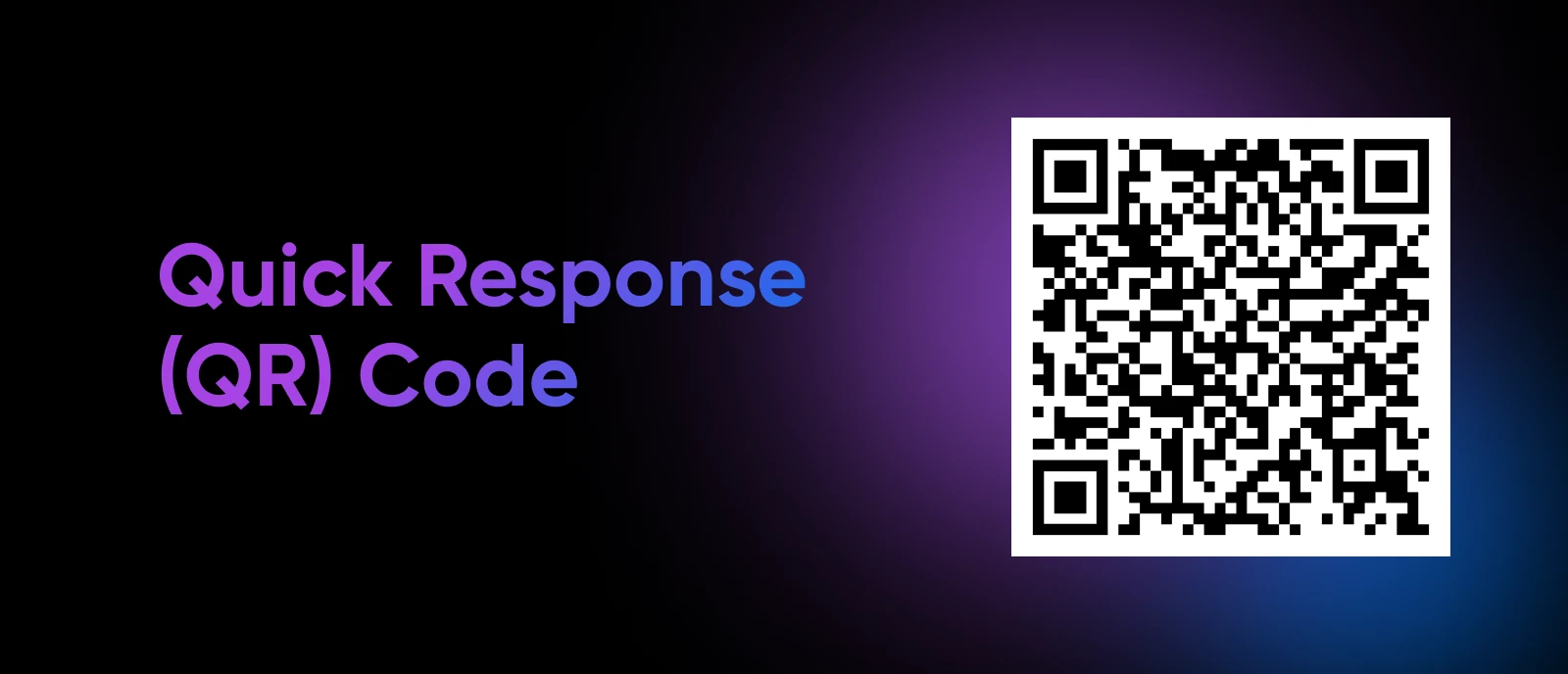
QR codes were originally invented by Japanese manufacturer Denso Wave Incorporated, as a system for tracking car parts. Some companies still use QR codes in a similar way.
When smartphones arrived, QR codes gained a new purpose. Instead of having to use a special code scanner, you could just use the camera on your mobile phone.
QR codes can hold alphanumeric characters (letters and numbers), binary code, and kanji (Chinese characters). That means you can use them to share:
- URLs (web addresses)
- Contact information
- Calendar events
- Product details
- E-tickets
- Locations
- Vouchers
- Payment details
And these are only the common examples.
The best part is that generating QR codes is free, fast, and easy. Genuinely, there’s zero skill involved. You’re more likely to mess up making coffee.
Why Are QR Codes So Popular?
Now that almost everyone owns a smartphone, QR codes are accessible to the majority of people. That makes them really useful for sharing information and online content.
For example, many companies that advertise on billboards include a QR code that holds a link to their website.
More recently, QR codes have seen a surge in popularity, partly because of the COVID-19 pandemic.
In the months after lockdown, many brick-and-mortar businesses sought ways to reduce human contact. QR code technology offered the perfect solution.
Instead of picking up a restaurant menu or handing over cash at a checkout, customers could simply scan a code with their phone.
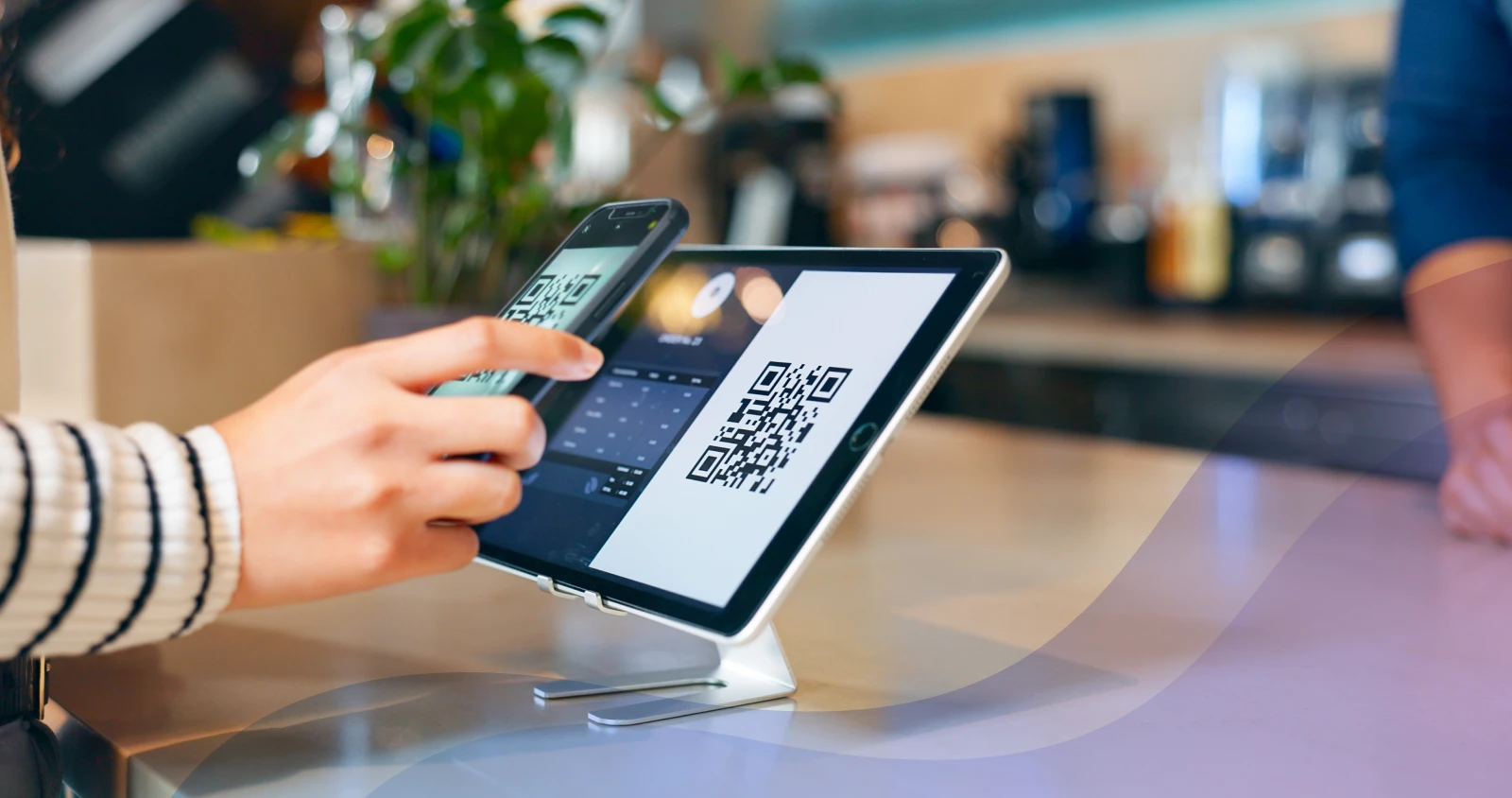
These trends have continued, with many people preferring digital options.
At the last count, 89 million smartphone users in the United States scanned a QR code on their Internet-enabled mobile device. By 2025, that figure is expected to be over 100 million.
All The Ways You Can Use QR Codes
As we mentioned earlier, there are loads of ways to use QR codes. Now, it’s time to take a closer look at the possibilities.
Marketing And Advertising
QR codes are often used to make advertisements interactive. They can be included in print ads, billboards, and flyers to direct users to landing pages, promotional videos, or special offers.
Landing Page
A landing page is a singular web page that typically serves a unique marketing objective. For instance, this page may be designed to capture email leads or communicate a ‘coming soon’ message.
Read MoreOutside of advertising, brands regularly use QR codes to run contests, surveys, and loyalty programs. They can even be used to set up augmented reality (AR) experiences and virtual tours at promotional events.
Product Information And Tracking
Brands often include QR codes on product packaging to provide easy access to extra information, such as product manuals and set-up guides.
Behind the scenes, QR codes allow manufacturers to track products through the supply chain, while retailers can use them to track inventory and detect counterfeits.
Contactless Payments
Many retail stores have a QR code at checkout that allows customers to pay via mobile. These systems are particularly popular in countries where contactless mobile payments have yet to take off.
E-commerce stores use QR codes for the same purpose, while folks who own cryptocurrencies sometimes use codes to set up transactions.
Education
Publishers often print QR codes in textbooks to provide extra resources like videos and online quizzes. It’s pretty much the digital version of a handout.
Events And Hospitality
Most live event venues now rely on QR code check-ins to verify tickets and track people entering. Once inside, fans scan codes to join interactive parts of the show.
In hotels and restaurants, QR codes appear on tables, providing access to menus and online ordering systems.
And Plenty More
You can find QR codes in many more settings. A few examples:
- In healthcare, patient wristbands have QR codes that link to medical records.
- Many business professionals now add a QR code to their business cards for a digital copy of their contact information.
- Real estate agents provide QR codes that link to virtual tours.
How To Generate QR Codes
Okay, we’ll stop banging on about how great QR codes are. What you really want to know is how to make one, right?
The answer is surprisingly simple: get a QR generator.
Available on all major desktop and mobile platforms, these apps allow you to encode your data in seconds. You just paste in your data, choose your design, and grab the code.
Many QR generators are free. Paid options offer advanced features, such as bulk jobs and branded designs.
Choosing Your QR Code Generator
Nowadays, the list of QR code generators is almost overwhelming. Most can complete the basic task of building a functioning barcode, but you might need more than that.
Before committing to one solution, it’s worth thinking about whether that particular app can handle everything you want.
Here are some questions to ask yourself:
- What types of data do you want to encode? Most code generators can handle links, but you might need a specialized solution for sharing Wi-Fi login details or setting up internal tracking.
- Where are you planning to share your barcodes? The majority of code generators are made for sharing on digital platforms. If you’re planning to print, make sure your chosen app provides a high-quality code image. Also, do you need phone-friendly codes, or will you use dedicated code readers?
- Do you want to customize the design of your codes? Even though QR codes are based on a specific alignment pattern, you can still mix things up by embedding your logo or using an alternative color palette. If you want this option, choose your QR generator accordingly.
- Do you want to create codes that can be edited? Regular QR codes are set in stone once they are created. However, some apps also allow you to create dynamic QR codes, which link to one URL and then redirect to a second URL. You can change this second URL whenever you want to change the content linked to your QR code.
- Do you want to track when and where your codes are scanned? QR analytics can be really useful if you’re using barcodes in marketing and advertising campaigns. Many paid QR generator tools provide this feature.
Use your answers to narrow down the field. Then, find two or three QR generators that match your broad requirements and take them for a spin. Make sure to assess:
- Ease of use: Wading through features you don’t need is just a waste of time.
- Customization: If this option matters to you, make a note of all the ways you can adapt your codes.
- Security: If someone gains unauthorized access to your account, they could redirect your QR codes. Heinz discovered this to their cost a few years ago. Look for providers that recognize GDPR, SOC 2, and other recognized protections.
- Cost: Obviously, it needs to be within budget.
Top tip: set up a scoring matrix to compare different QR tools across these criteria. It’s also a good idea to read online reviews for each solution.
Free vs. Paid QR Code Generators
If you only need to make the occasional barcode without any bells and whistles, you probably won’t need to spend a dime. Some code generators even let you build dynamic and customized QR codes on a free account.
Upgrading to a paid tool or premium subscription is worth doing if you plan to use QR codes regularly, particularly in a business context. Analytics is almost always a paid feature, and you will need a paid account to make more than a few dynamic barcodes.
8 Best QR Code Generators
You could spend ages wandering around the web to find the best QR code makers. To save you the hassle, we’ve hunted down the ideal tools for every occasion. Here’s your ready-made shortlist:
1. QR Code Monkey: Best Free QR Code Maker
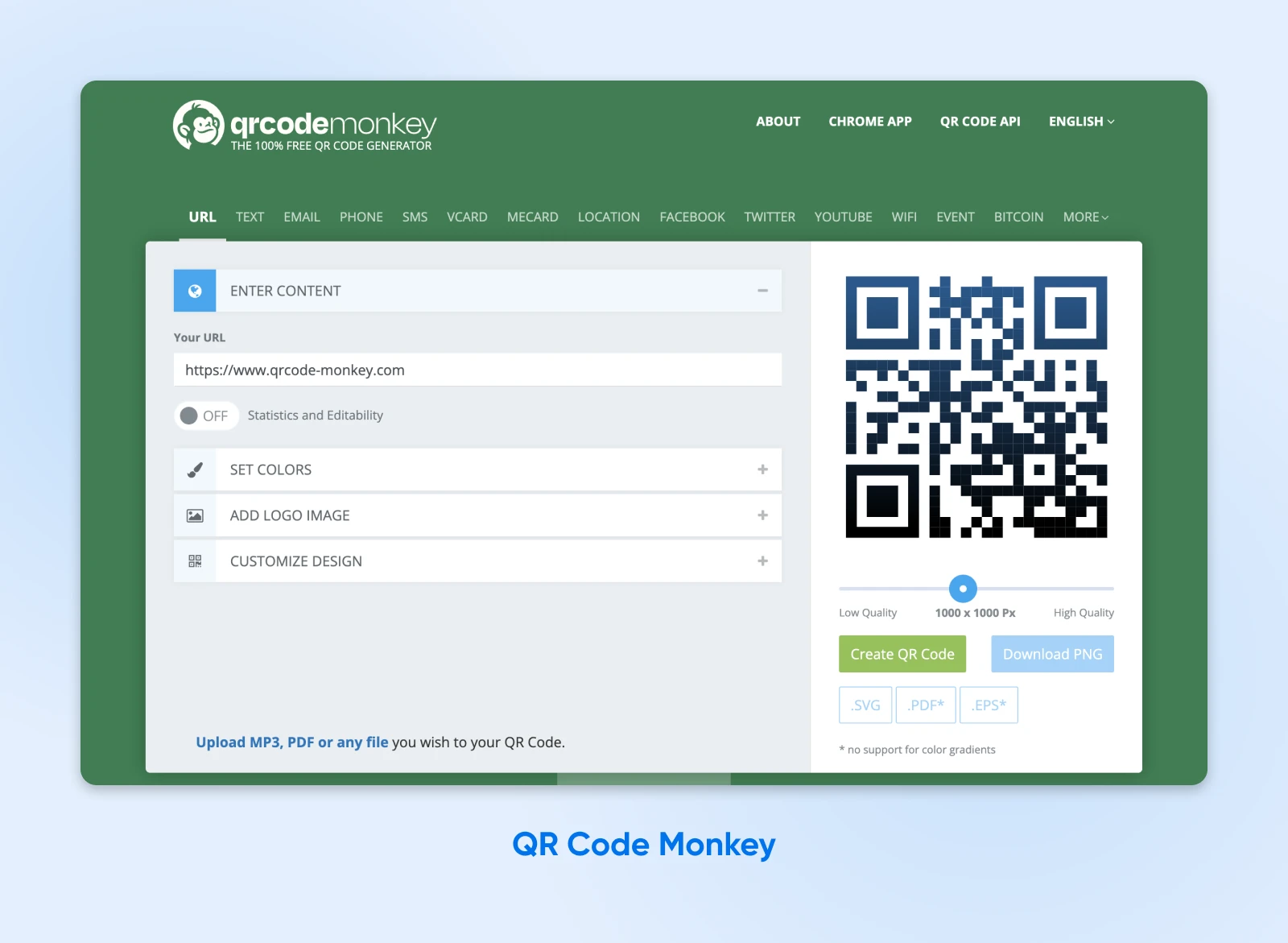
If you’re looking for a zero-cost solution that does the basics well, QR Code Monkey is probably your best bet.
This web-based tool can handle most data types, from Wi-Fi passwords to MP3 audio files. Customization options allow you to add frames, choose non-standard code structures, and add your logo.
QR Code Monkey even supports print-compatible formats like SVG, PDF, and EPS.
Key features:
- Great range of free tools
- Customization options
- Premium version with dynamic codes and tracking
Pricing: Free
2. TQRCG: Best Budget QR Generator
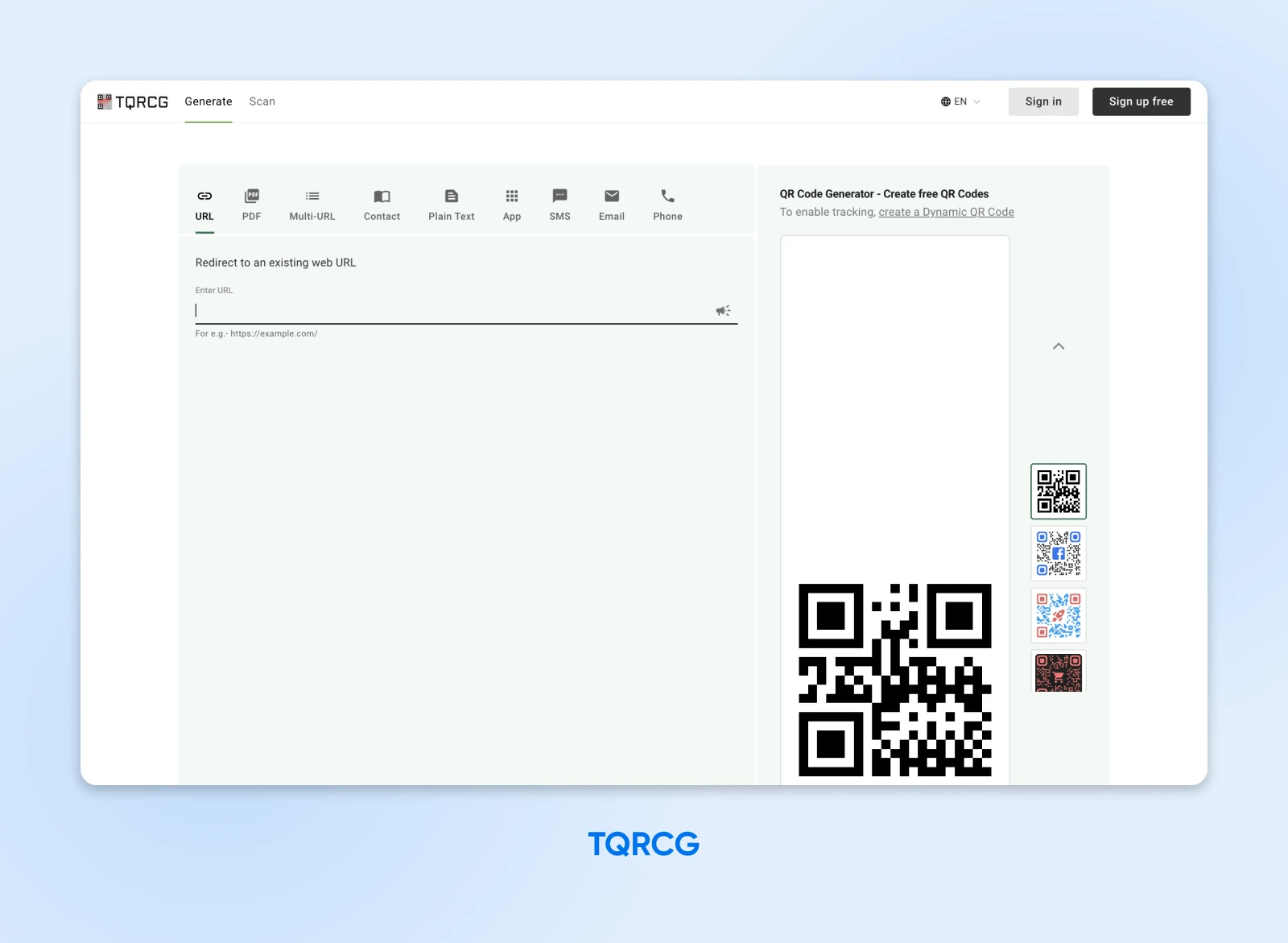
TQRCG is actually very similar to QR Code Monkey.
Like our best free pick, this platform is easy to use and compatible with most data types. It also offers design customization options under paid plans.
The main difference is in the pricing model. With TQRCG, you can create up to five dynamic codes and get tracking on unlimited static codes for $5 per month. That’s usually enough for most small businesses.
Key features:
- Easy to use
- Affordable premium plans with dynamic codes and tracking
- Unlimited static codes with a free account
Pricing: Freemium
3. QR Code Generator: Most Usable QR Code Creator
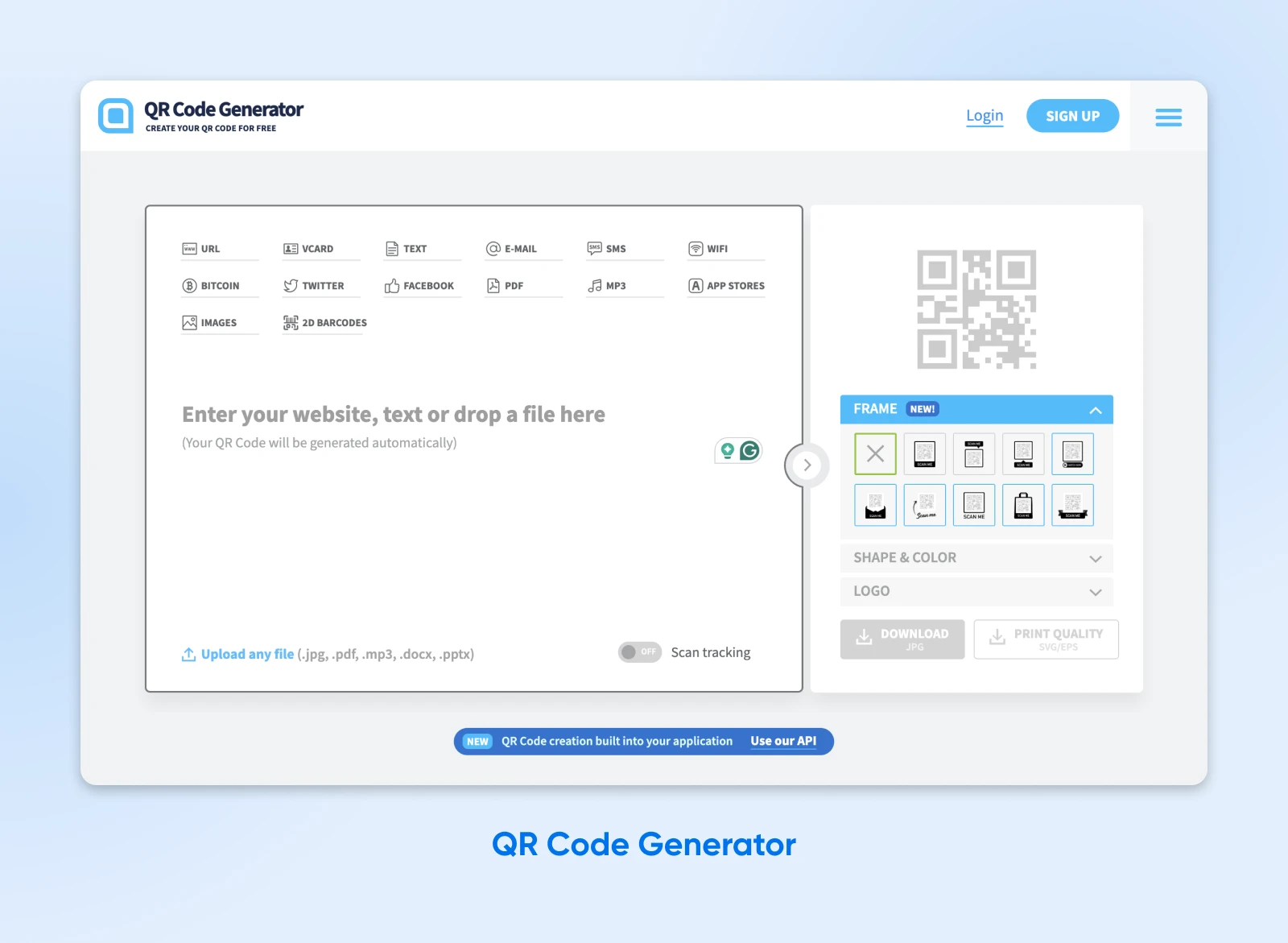
The standout feature of QR Code Generator is usability. This paid tool looks great, and the interface makes it easy to understand what you’re doing.
One neat feature is the option to build a mini-landing page for your QR codes. This means you don’t need a business website to share information and contact details (although we definitely recommend creating one).
This app also offers great organization tools, bulk code creation, and multi-user logins for collaboration.
Key features:
- Great interface
- Dynamic codes, analytics, mini-sites
- Bulk code generation
Pricing: From $8.71/month
4. Uniqode: Best Business QR Code Maker
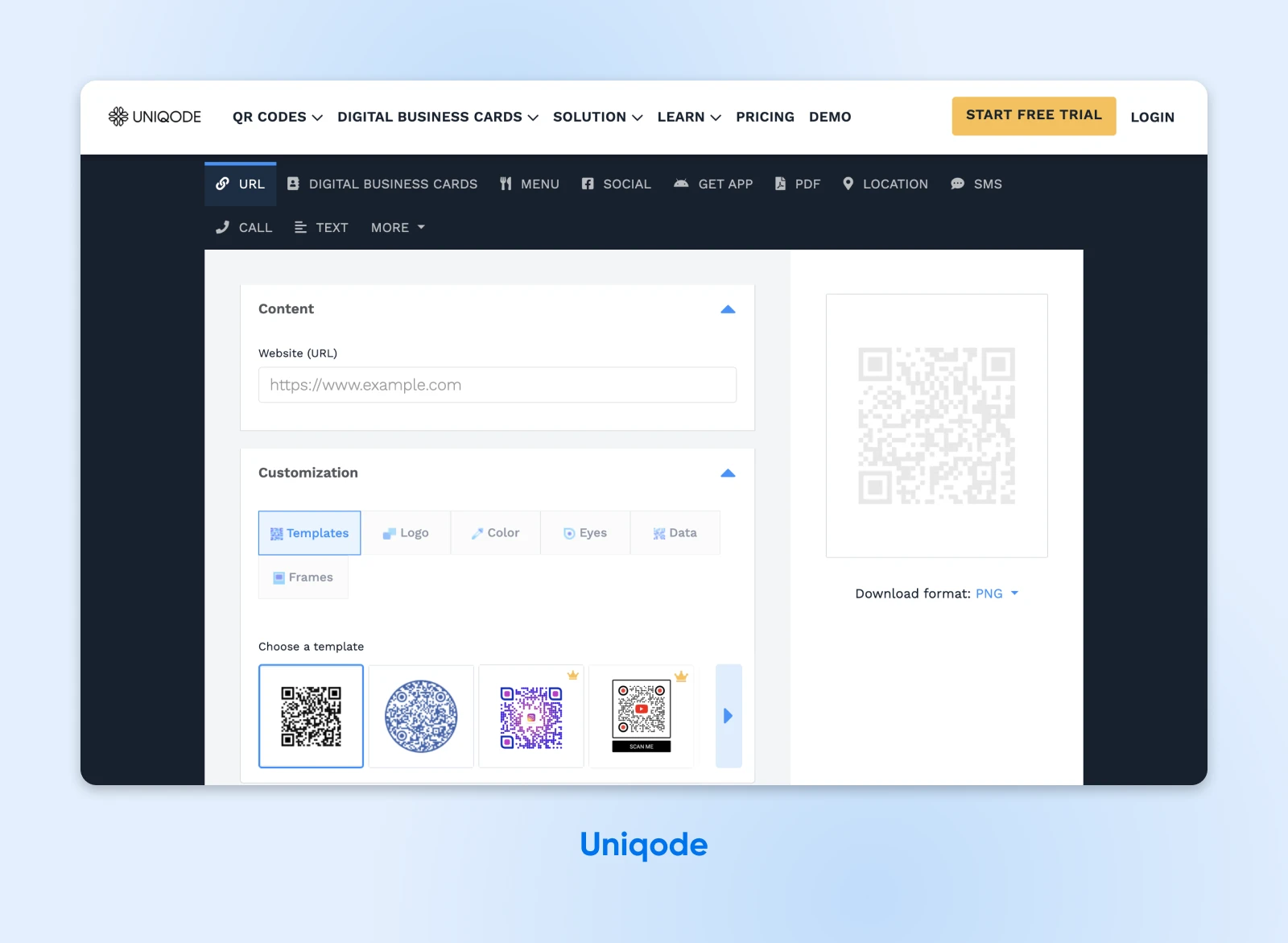
If you need a QR code maker with a bit more bite, Uniqode could be your perfect match.
This tool goes beyond the basics, offering advanced features like password protection, scannable expiration dates, and integrations with apps like Zapier and Canva.
Uniqode also excels at analytics. It serves up a menu of detailed insights, with details on who’s scanning your codes, when, and where — making it much easier to track your campaigns.
Key features:
- Advanced features include password protection and expiration dates
- Powerful analytics and tracking
- Integrations with Zapier and other tools
Pricing: From $5/month
5. QR Batch: Best Bulk QR Code Generator
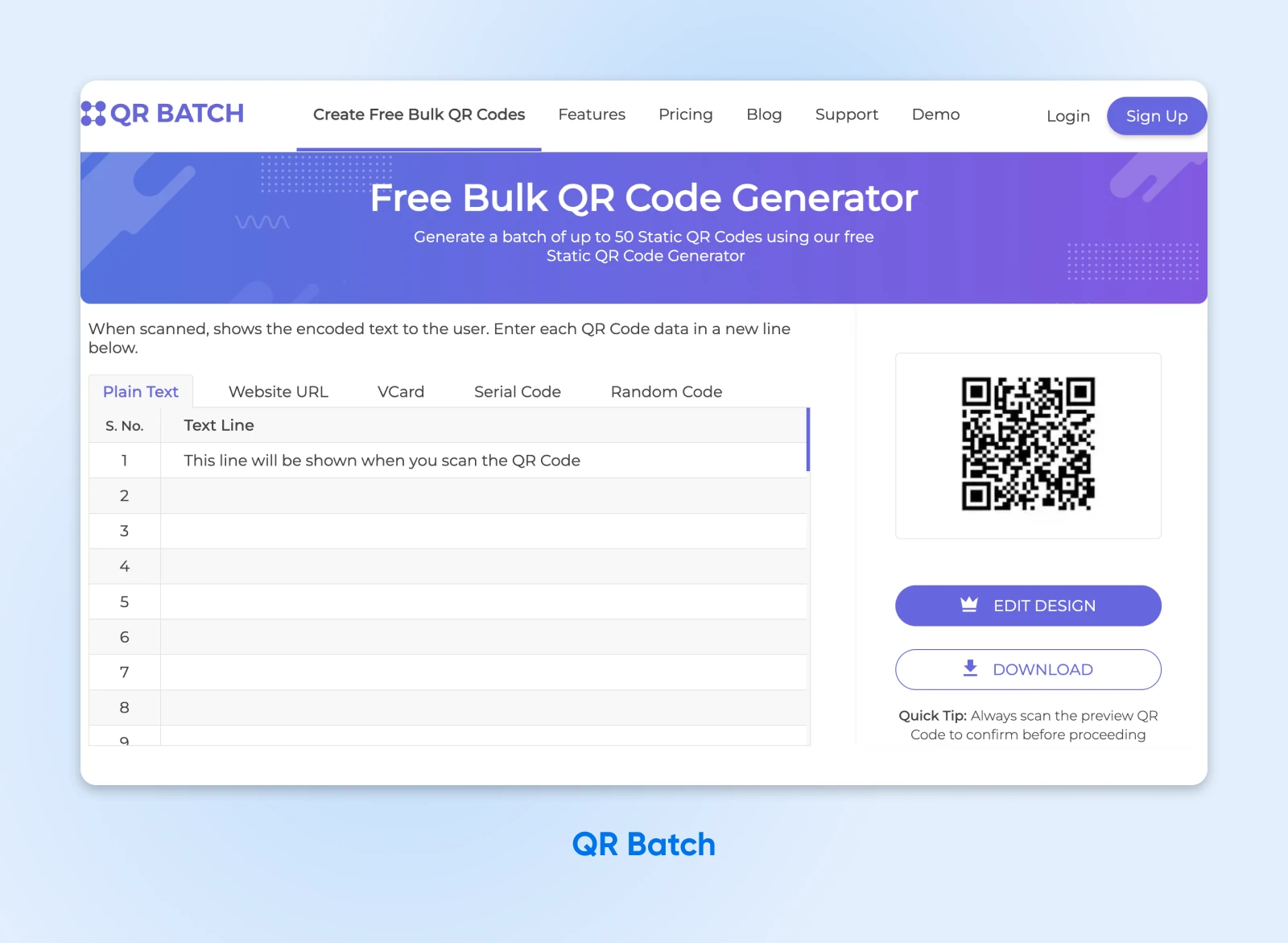
Need to create hundreds or even thousands of QR codes? QR Batch is the tool for the job.
This platform is designed for bulk code generation, allowing you to upload a spreadsheet of data and quickly turn it into a set of unique barcodes.
The per-code pricing does make this tool more expensive for small quantities of codes. However, it becomes super affordable at scale. We also like this platform’s strong security features.
Key features:
- Bulk QR code generation from spreadsheets
- Affordable pricing for large volumes of codes
- GDPR, ISO/IEC 27001, and SOC 2 security
Pricing: Freemium
6. Unitag: Best Advanced QR Code Maker
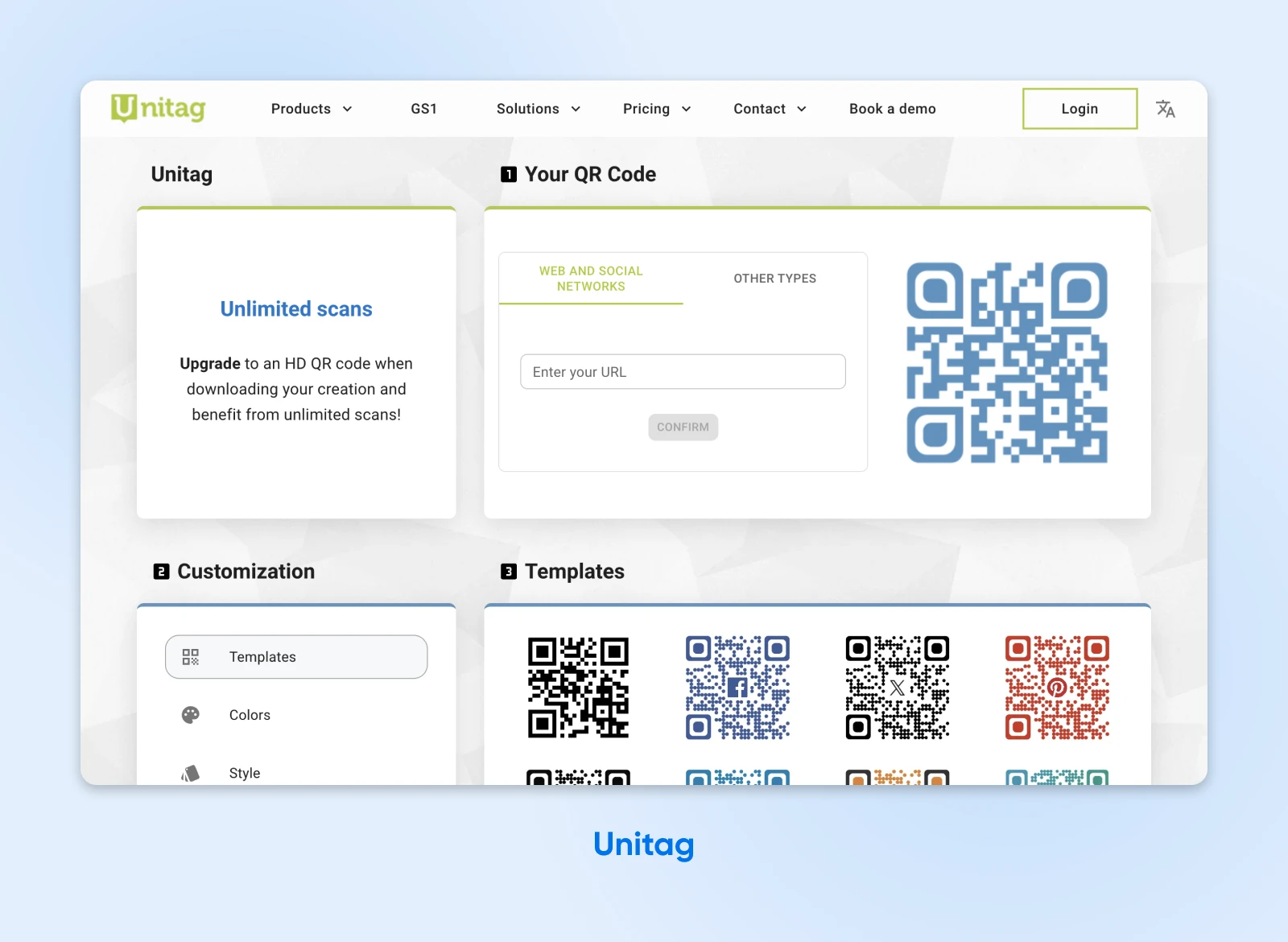
As possibly the most powerful solution on this list, Unitag caters to businesses that need a high degree of control.
The platform offers a free tool for generating static codes. Under premium plans, you can create highly customized dynamic codes and digital business cards.
Unitag also provides advanced tracking for codes on product packaging, manufacturing, and events management. It adds up to a solid choice for business owners with complex QR code needs.
Key features:
- Loads of customization and branding options
- Advanced tracking and analytics
- Integrates with marketing and CRM platforms
Pricing: Freemium
7. Canva: Best QR Code Creator For Design Projects
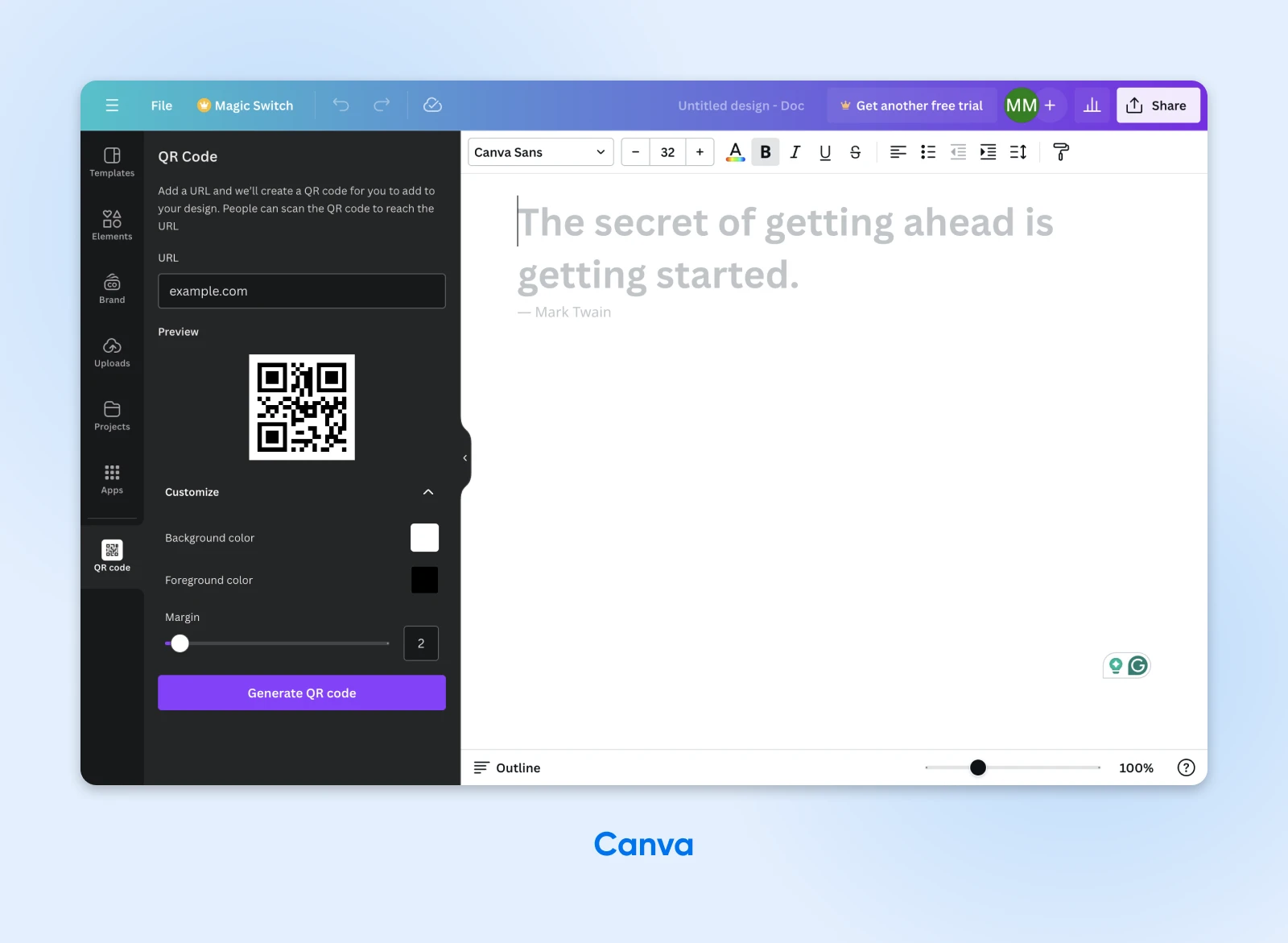
Wait a minute. Isn’t Canva a design platform?
Well, yes. But Canva also has a built-in QR code maker, meaning you can quickly integrate 2D codes into design projects — including social media posts, flyers, website content, and more.
The QR code builder allows you to choose from a range of stylish templates, add your logo, and customize colors with a couple of clicks. It’s completely free, too.
Key features:
- User-friendly interface
- Integrates with Canva’s popular design platform
- Good customization options
Pricing: Free with Canva account
8. Hovercode: Best Dynamic QR Code Maker
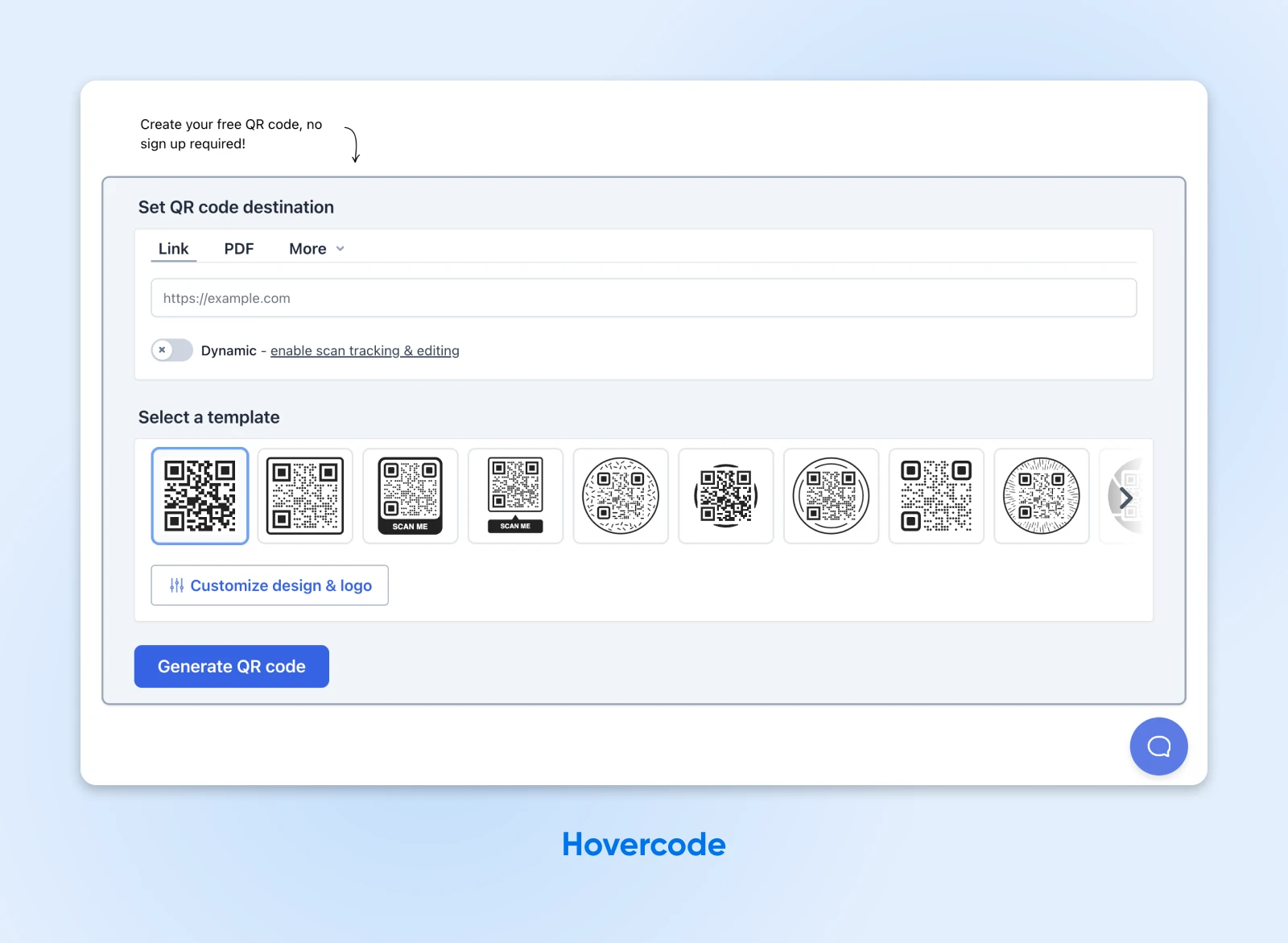
Hovercode is the reigning champion of dynamic QR codes — the ones that can be edited after being shared.
This single-minded QR code maker also offers an impressive free plan, with up to 10 dynamic codes, logo customization, and unlimited scans.
Paid plans unlock higher limits, location-based tracking, and the option to create QR codes that trigger actions, such as opening a specific app or sending a text message (great for increasing conversions).
Key features:
- Focus on dynamic QR codes
- Ability to trigger specific actions
- Generous free features
Pricing: Freemium
Get Started With QR Codes Today
Whether you’re running a multi-million dollar business or just trying to promote your backyard bake sale, QR codes can help. The technology is convenient for users, very affordable to harness, and easy to deploy.
If you’re ready to get started, here’s a reminder of our top picks:
- QR Code Monkey: Best free tool
- TQRCG: Best budget option
- QR Code Generator: Best usability
- Uniqode: Best for business
- QR Batch: Best for bulk code generation
- Unitag: Best advanced QR code generator
- Canva: Best for design
- Hovercode: Best for making dynamic QR codes
Remember that QR codes are best paired with a strong online presence. With DreamHost, it’s really easy to build and host a great website.
Our shared hosting plans offer one-click installers, free SSL security, and 100% uptime guaranteed.
Sign up today to try it for yourself!
QR Code FAQs
If you still have some outstanding questions about QR codes and how to use them, we have answers. Here are some of the most common follow-up queries:
What is the minimum size for a QR code?
Most QR codes are at least 1×1 inch (2.5×2.5 cm). However, you might need to make your codes bigger if you want people to be able to scan from further than a few inches away.
Recently, Denso Wave released the rectangular micro QR code standard. These barcodes can only hold 35 characters (regular QR codes hold 7,000 numeric characters), but they are much smaller. The main downside is that you need a special app to read them.
Do QR codes expire?
No. The only thing that can “break” is the destination URL.
How are QR codes generated?
QR codes are generated by encoding data (such as URLs, text, or other information) into a two-dimensional barcode using special algorithms. This process involves converting the data into a matrix of black-and-white modules and incorporating error correction codes.


